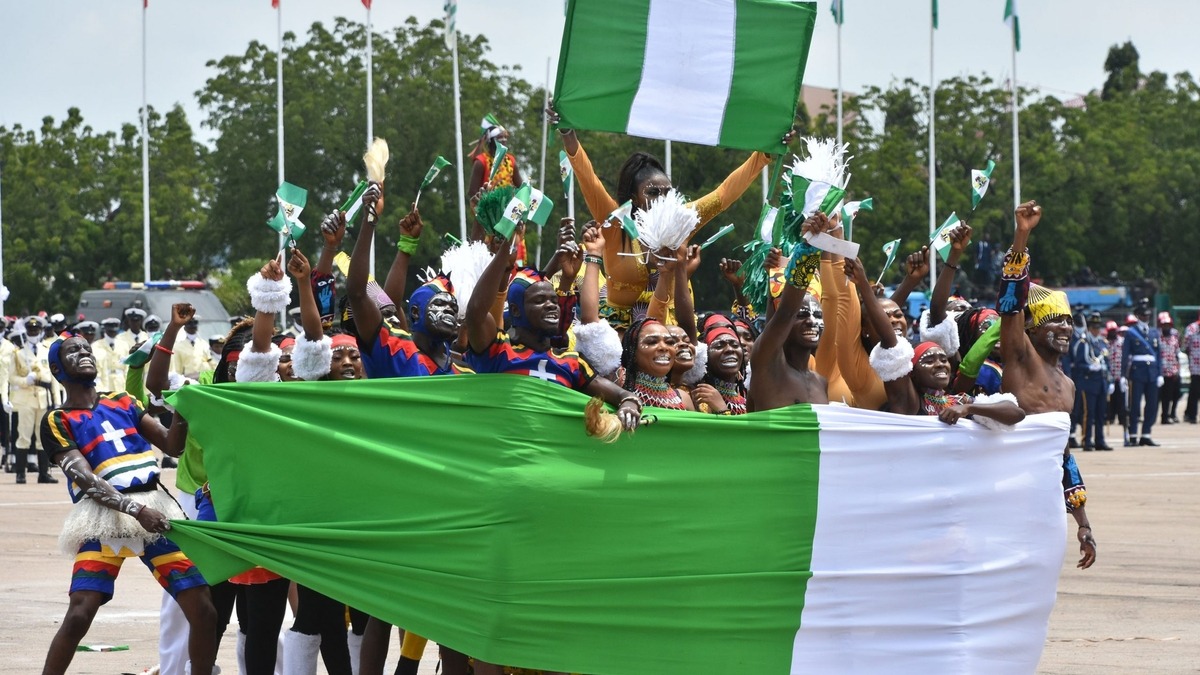Nigeria, a nation once known for its vibrant Independence Day celebrations filled with dancing and flag-waving, now finds itself in a somber mood on its 63rd anniversary of freedom from the United Kingdom. The streets, which used to resonate with joyous festivities, are eerily quiet, marked only by the steady flow of traffic as churchgoers attend Sunday masses. Disillusionment and disenchantment have gripped Nigerians of all ages, leading to a decline in patriotism as they reflect on the country’s six decades of progress, or rather, the lack thereof.
A Nation in Economic Turmoil
For many Nigerians, the dream of a prosperous and thriving nation has been shattered, primarily due to the economic downturn that has persisted under the administration of President Muhammadu Buhari. Youth unemployment, inflation, and debt have reached unprecedented levels, pushing over 60 percent of the population into “multidimensional poverty,” according to the United Nations. Furthermore, the chronic issue of unreliable electricity supply continues to plague the country, with the national grid experiencing multiple collapses this year. Buhari’s successor, Bola Tinubu, who took office amidst a disputed election, implemented some early reforms, including the removal of a fuel subsidy and the devaluation of the naira. While these moves were applauded by industry experts, ordinary citizens have felt the burden of these changes in their daily lives.
The Erosion of Optimism
Augustine Okofu, who vividly remembers the euphoria of Nigeria’s first Independence Day in 1960, now finds himself disillusioned by the current state of the nation. He fought for the federal troops during the Biafran War, believing that Nigeria’s future would be brighter. However, instead of progress, Okofu observes a darkening horizon. Many Nigerians, like Okofu, feel that the promise of independence has been unfulfilled, and their hopes for a better future have been replaced by a sense of despair.
Economic Woes and Ethnic Tensions
In recent years, patriotic joy has been on a steady decline, but experts note that this year has been particularly disheartening. Beyond economic woes, lingering ethnic tensions, exacerbated by political differences during the last election cycle, have contributed to the muted Independence Day celebrations. Historically, Nigerians have come together in times of economic prosperity, fostering a sense of patriotism. However, this unity has been eroding over time. Joachim MacEbong, a senior governance analyst, highlights three periods in which optimism prevailed: post-independence until the civil war in 1967, the 1970s oil boom, and the early post-military era from 1999 to 2007. However, these moments of optimism have been overshadowed by the current decline, particularly among the youth, whose purchasing power has significantly dwindled during their lifetimes.
A Call for Inclusive Governance
The sentiments of disillusionment expressed by Nigerians like Olive Chiemerie and Augustine Okofu should serve as a stark challenge to government officials at all levels. Unfortunately, many government officials appear to be ignoring the stark reality, opting instead to bury their heads in the sand. To rekindle the flames of patriotism, experts emphasize the urgent need for the government to work for the majority, promoting inclusiveness and addressing the deep-rooted issues plaguing the nation. Only then can Nigerians truly celebrate Independence Day as it was meant to be—a day of hope, unity, and progress.
In the bustling city of Lagos, Olive Chiemerie has chosen to spend Independence Day visiting her aunt after church service, with a heavy heart. She reflects, “I will go on as if nothing is happening in the country. If anyone thinks I am disloyal, Nigeria does not care about me, so I won’t go out of my way to celebrate.” The sentiments of disillusionment and the yearning for change echo throughout Nigeria, leaving the nation at a critical juncture, where the path to a brighter future is uncertain.















